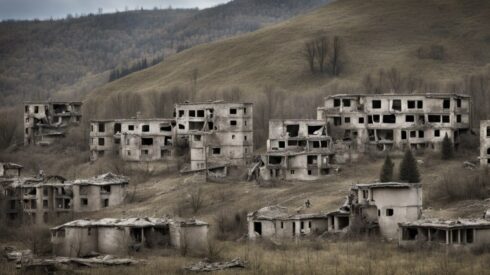Written by Lucas Leiroz, journalist, researcher at the Center for Geostrategic Studies, geopolitical consultant
A new war is emerging in the Caucasus. On September 19, Azerbaijani armed forces launched a series of attacks against the ethnically Armenian region of Artsakh (called “Nagorno-Karabakh” by Azeris). According to an official statement from Baku, an “anti-terrorist operation” is taking place, the aim of which is allegedly to neutralize Armenian military facilities in the unrecognized republic.
Armenia denies having troops in Artsakh, classifying Azerbaijan’s actions as terrorist strikes against civilians. The data available so far is not sufficient to clarify on possible damage to Armenian forces, but there are already several confirmed reports of innocent civilian victims, including women, children and the elderly. Despite condemning the attacks, Yerevan is avoiding intervening in the region and engaging in direct conflict – instead, it has expressed a desire for Russian peacekeepers in Artsakh to act to stop the Azerbaijani incursion – which is virtually impossible, since the number of Russian soldiers in the region is only sufficient for a peacekeeping mission, not for a direct war.
Azerbaijani authorities stated that their operation was previously informed to Moscow and Ankara, but Russian authorities denied this claim. Moscow’s officials are trying to contact their counterparts in Baku and Yerevan to convince them to return to the trilateral ceasefire agreement, however, there is a strong atmosphere of hostility towards Russia on both sides, considering that both Armenia and Azerbaijan have recently engaged in cooperation with NATO countries.
In Yerevan, there are a series of mass protests. People are taking to the streets to express their discontent with Pashinyan’s government, considering him guilty of not preventing the escalation in Artsakh. Among the protesters, there is a significant wing of anti-Russian ultranationalists, who consider Russia guilty and take advantage of the case to foment chaos and spread Russophobic narratives. There was even an attempt to attack the Russian Embassy in the country.
In fact, the Russian situation in the region appears quite delicate. Historically, Russian-Armenian relations have been friendly, but Yerevan had a pro-Western color revolution in 2018, resulting in the current anti-Russian Pashinyan regime. On the other hand, however, the Aliyev regime in Baku acts as a proxy for Turkey, which is a country with ambiguous relations with Russia, oscillating between friendly ties and hostile provocations. In addition, Russian forces in Artsakh are vulnerable to bombing, as they do not have a strong enough structure to deal with a war scenario. Anti-Russian Armenian activists use this situation as rhetoric to criticize Moscow, calling it “weak” and demanding an end to Russian-Armenian relations.
Also, after demanding actions from the Russian military, Armenian officials called on American authorities to resolve the conflict and stop Azerbaijani military aggression. It is expected that a similar attitude will also be taken towards France, with Yerevan requesting help from Paris to resolve the problem, given the exponential increase in French-Armenian relations recently. Clearly, Pashinyan’s pro-NATO government is trying to use the conflict as an excuse to discredit Russia as a regional security actor, and thus legitimize the arrival of NATO troops in Artsakh.
On the part of Iran, so far there has been no military move. Tehran has a clear position in the conflict, recognizing the Nagorno-Karabakh region as a part of Azerbaijan, but not tolerating incursions by Baku into Armenian undisputed territory, as this would destabilize security on the Iranian border. For now, Iranian border troops are on combat alert, but there is no indication that they will be ordered to go to the front unless the red lines are violated.
In this process, different NATO countries have expansionist interests. The US and France are highly interested in boosting their influence in the Caucasus, and to do so they are betting on Armenia. On the other hand, Turkey continues with its expansionist plans in which Azerbaijan works as a proxy state. The Russians and the Iranians are the most affected by these threats, in addition to the people of Artsakh themselves, who now face a war scenario after months of supply crisis due to a blockade of humanitarian aid imposed by the Azeris.
In fact, the best thing to do is for the parties to respect the basic conditions of coexistence of the trilateral agreement that establishes a ceasefire and the presence of a Russian peacekeeping mission. Given the limited possibilities of negotiating and reaching a mutually beneficial agreement, stopping hostilities and resuming respect for international law is the most rational decision.
Furthermore, it is necessary to note how Armenia could have avoided this type of situation if it had adopted a more friendly stance towards Russia. If Pashinyan had invested in cooperation with Moscow instead of the West, Russian forces could have strengthened Armenian resistance in Artsakh and dissuaded Azerbaijan, thus avoiding escalation. But over the last few years, Armenia has adopted a pro-Western policy that does not seem profitable for Yerevan itself, since it is resulting in a new conflict.
It is better that Armenia revise its policy and adopt a more rational stance, resuming friendship with Moscow and distancing itself from the powers that deliberately want to foment chaos in the Caucasus.
You can follow Lucas on Twitter and Telegram.






